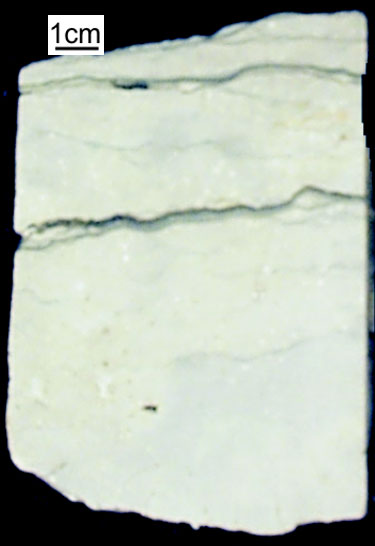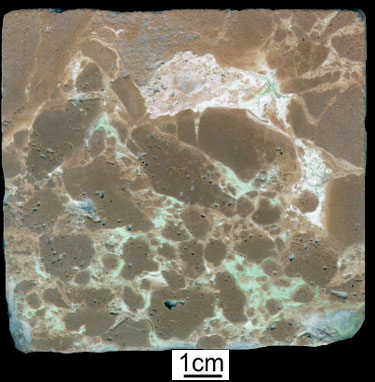Facies (9) Intra-Arbuckle Shale (Non-reservoir)

Augusta #6-56 2576’
Some shales are interbedded with carbonate rocks suggesting they were deposited during Arbuckle deposition. In addition, horizons with wavy horizontal to horizontally interbedded shale and carbonate mudstone-wackestone are present. Several shale layers contain silicified nodules and lenses that may have replaced evaporites. These shale layers likely represent relatively low energy subtidal to peritidal conditions. Supratidal conditions may be indicated for some horizons where silicified nodules apparently represent replacement of original evaporite minerals.
Facies (9) Fracture-fill Shale (Non-reservoir)

#11-05 Truesdell 3386.3’
Breccia with green shale matrix
Much of the shale in the uppermost section of the Arbuckle is green and clearly represents fracture or cave fill, with sediment originating from above the unconformity. Locally, fracture fills contain fragments of dolomite rhombs and subangular to rounded silt-size to coarse-grained detrital quartz grains.
|
|
e-mail : webadmin@kgs.ku.edu
Last updated June 2003
http://www.kgs.ku.edu/PRS/publication/2003/ofr2003-32/P3-04-9.html
